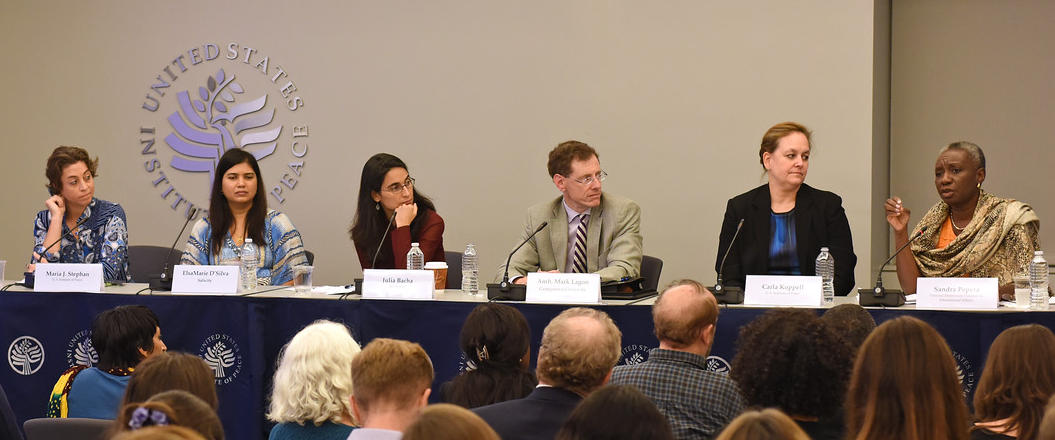The Obscured Role of Women in Nonviolent Movements
How Seeing and Supporting Women Can Strengthen Conflict Transformation
From Argentina to Poland to Liberia and beyond, women have been leaders, spokespeople and frontline activists in non-violent struggles for peace and justice. But how women work in these struggles, and how they change them, has been little researched. That inattention has left women’s roles underestimated or ignored. On October 6, USIP released a Special Report on women’s roles in non-violent struggles. With the National Democratic Institute for International Affairs (NDI) and the non-profit organization Just Vision, USIP gathered path-breaking activists, scholars and filmmakers to examine how women’s participation—and the success of non-violent campaigns—can be strengthened.

The new report notes that research finds non-violent movements with massive, diverse participation are more effective. The report’s author, Marie Principe, joined other panelists in discussing how policymakers and advocates of nonviolent change can best support women’s participation and leadership in such movements, and how to parlay this involvement into political and institutional gender equality. Participants included human rights advocates Jimmie Briggs and ElsaMarie D’Silva, who have pioneered campaigns to end gender-based violence, and prominent filmmaker Julia Bacha, whose recent TED talk is titled “How Women Wage Conflict Without Violence.” Bacha screened a preview of Just Vision's documentary film on Palestinian women in the first intifada. Continue the conversation on Twitter with #WomenMovements.
Panelists
Carla Koppell
Vice President, Applied Conflict Transformation Center, U.S. Institute of Peace
Maria J. Stephan
Senior Policy Fellow, U. S. Institute of Peace
Marie Principe
Program Associate, Global Women’s Leadership Initiative, Woodrow Wilson Center
Sandra Pepera
Director of Gender, Women and Democracy, National Democratic Institute for International Affairs
Kathleen Kuehnast
Senior Gender Advisor, U.S. Institute of Peace
Julia Bacha
Creative Director, Just Vision
ElsaMarie D’Silva
Managing Director, Safecity
Jimmie Briggs
Co-Founder, Man Up Campaign




